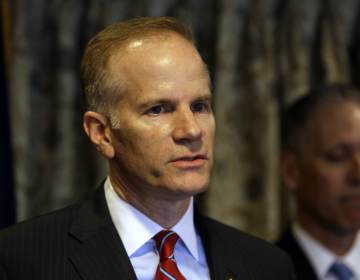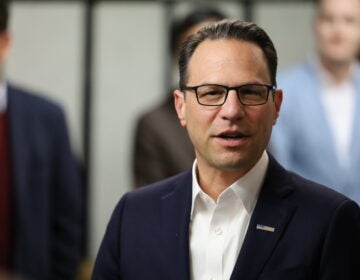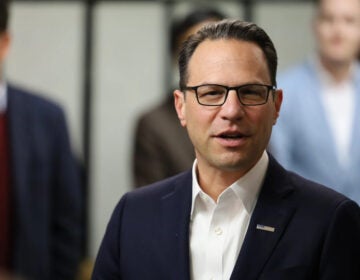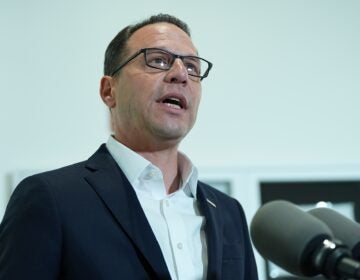What you need to know about the 2022 Pa. governor’s race
Cook Political Report, which is tracking gubernatorial races around the country, has the race rated as one of the country’s few true toss-ups.
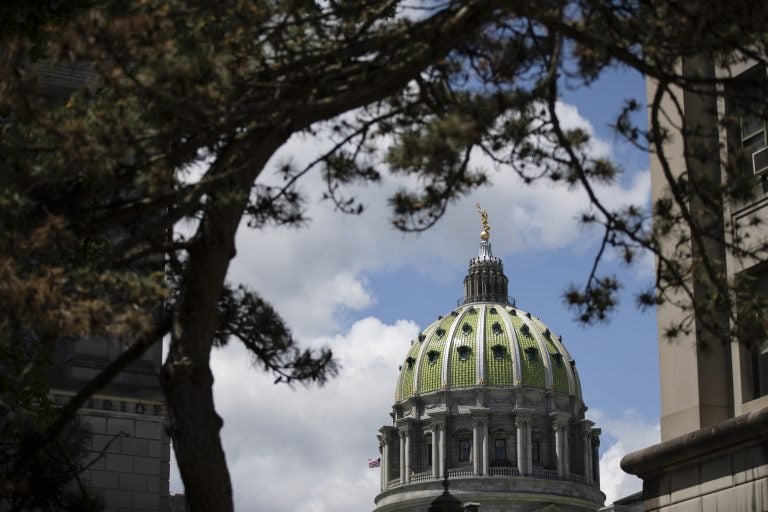
Shown is the Pennsylvania Capitol in Harrisburg, Pa., Monday, May 6, 2019. (Matt Rourke/AP Photo)
With Democratic Gov. Tom Wolf nearing his term limit, the 2022 contest for Pennsylvania governor is wide open.
This is a race that will have enormous implications for Pennsylvanians. Over the nearly eight years Wolf has been in office, members of the GOP-controlled legislature have become increasingly conservative — something that appears unlikely to change in the near term. Wolf’s veto pen has often been the only thing standing in the way of GOP efforts to, for instance, narrow abortion rights, impose voter ID, and bar certain vaccine requirements.
Cook Political Report analyst Jessica Taylor, who is tracking gubernatorial races around the country, has the race rated as one of the country’s few true toss-ups. She notes, though, that will very likely change depending on who Republicans pick in their May 2022 primary.
That side of the race has been tumultuous, with a crowded field of candidates duking it out to capture voters’ attention. Most of them also want attention from former President Donald Trump, whose influence holds tremendous sway among many of the commonwealth’s Republicans.
“This field is one I have a hard time getting a handle on, frankly,” Taylor said. “And talking with people, I kind of get that same sense. It’s still not really clear.”
What is much clearer, she noted, is the Democratic side. There’s only one major candidate on that side of the aisle — something that bodes well for the party’s overall chances.
“I think at this point, probably Democrats are feeling pretty good about it right now,” Taylor said.
Democratic candidates
Josh Shapiro, 48
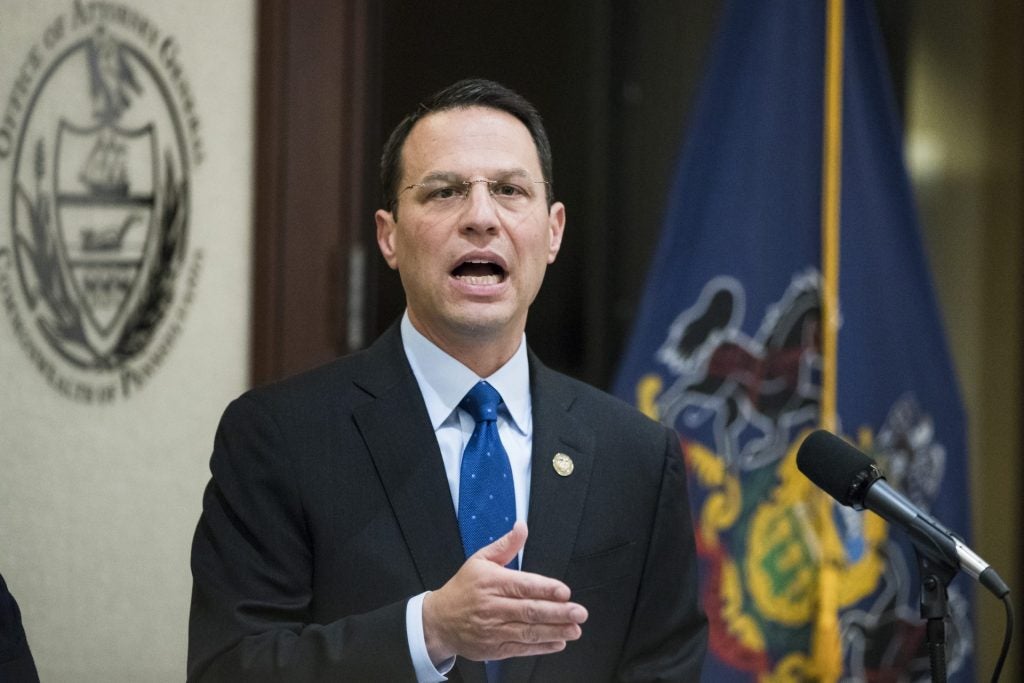
Current occupation: Pennsylvania Attorney General
Political history: Montgomery County Commissioner, State Representative
Hometown: Abington
Shapiro officially announced his candidacy in October, but his bid for Pennsylvania’s highest office has been in the works much longer — many in the commonwealth would argue, since the very beginning of his political career. He is expected to be the only serious contender for the Democratic nomination.
The Montgomery County Democrat began his political career in the state House, where he made a name as a savvy political operator when he helped broker a power-sharing agreement that maintained Democrats’ influence in Harrisburg during a period of closely divided House control.
He then served as a Montco commissioner before becoming Attorney General in 2017, ending a period of instability in the office. Perhaps his most significant action as AG was presiding over the release of a landmark grand jury report on decades of sexual abuse of children in Catholic dioceses across Pennsylvania. He subsequently supported retroactive lawsuits in cases where people abused as children were barred from suing because too much time had passed.
Throughout the administration of former President Donald Trump he held himself as a firm opponent and added his name to dozens of joint lawsuits with other Democratic attorneys general on issues including Trump’s family separation policy on the Mexican border, his administration’s policies on contraception, and his election-time changes to post office operations. During the 2020 election, he was a frequent cable news commentator and Trump critic as well.
But Shapiro, generally considered a political pragmatist, has also clashed with those to his left. Progressive Philly DA Larry Krasner is a semi-frequent opponent; the two tangled over a bill that gave Shapiro more control over prosecuting Philly gun crimes (though Shapiro tried to smooth the conflict over) and Krasner later sued the AG for settling with opioid distributors and manufacturers.
Republican candidates
Jake Corman, 57
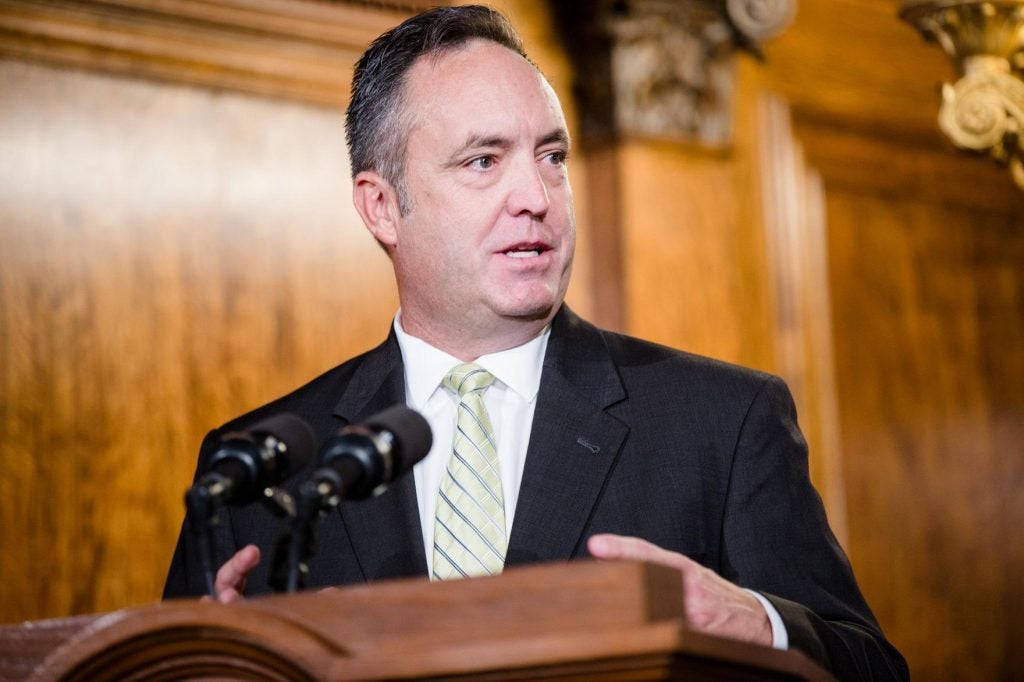
Current occupation: Senate President Pro Tempore
Political history: State senator since 1999, internally elected as chamber leader in 2014 and became pro tempore in 2020
Hometown: Bellefonte
In a GOP field full of political insiders, Corman is perhaps the furthest inside. He grew up in a political Centre County family. His mother, Becky, is a well-known GOP campaign organizer and consultant and his father, J. Doyle Corman Jr., served as a county commissioner, then as state Senator from 1977 to 1998.
The younger Corman (full name Jacob Doyle Corman III) ran for the seat after his father retired, and has kept it since.
For much of his career, Corman has had a reputation as a staunch conservative, but a generally pragmatic one.
During his tenure in leadership, he and the GOP-controlled chamber have rebuffed Democratic Gov. Tom Wolf’s attempts at sales and income tax increases and mostly ignored his proposals to further regulate fossil fuels. They also routinely passed bills they knew were bound for vetoes — ones that would have narrowed abortion access, or limited certain rights of public sector unions.
But Corman also expressed willingness to compromise on a minimum wage increase (his proposal: $9.50 per hour) and to pass a controversial severance tax on the natural gas industry. Both efforts failed in the House. He also helped shepherd a notable pension overhaul through the legislature.
More recently, as Corman has presided over an increasingly conservative caucus, he has waded more frequently into national political and cultural wars. He and a number of other GOP Senators signed a letter to Pennsylvania’s congressional delegation ahead of the Jan. 6 insurrection in Washington D.C. urging them — without evidence — to investigate “inconsistencies” in the vote and delay certification of the 2020 election.
He has failed to build much traction in the crowded race, and facing flagging fundraising in mid-April, he briefly dropped out of the primary. But he almost immediately dropped back in after, he said, Trump got in touch and urged him to keep running.
Lou Barletta, 65
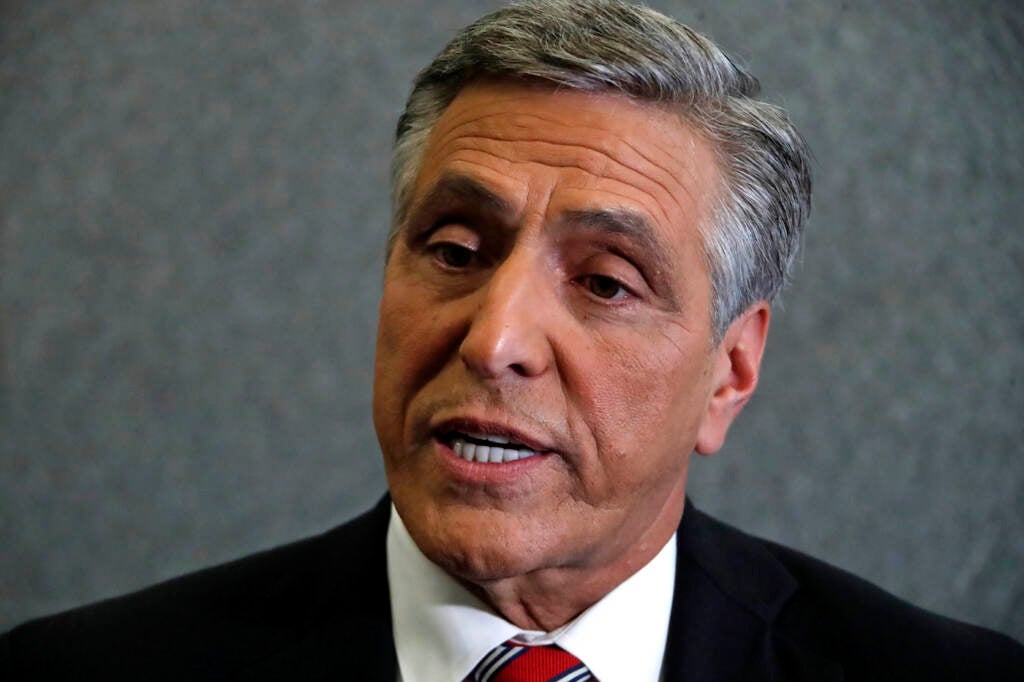
Current occupation: Retired
Political history: U.S. Congressman (PA-11), candidate for U.S. Senate in 2018, mayor of Hazleton
Hometown: Hazelton
Barletta, a former four-term congressman who ran for U.S. Senate in 2018 and lost badly to incumbent Democrat Bob Casey, is one of the many Republicans in Pennsylvania’s 2022 races hoping to use Trump’s 2016 success in the state to his advantage.
Barletta decided to mount another statewide office run after being out of the political spotlight for two years, he says, because he was frustrated with Wolf’s pandemic mitigation measures. In the early days of COVID-19, they included broad business shutdowns.
He also says he wants to make sure coal, oil, and natural gas production doesn’t slow in Pennsylvania. He opposes the commonwealth’s expansion of mail-in ballot use, plans to protect police budgets from potential cuts, and would fight against “sanctuary cities” like Philadelphia, where local officials pledge not to cooperate with federal immigration officials to deport undocumented people.
Barletta was one of the first congressional members to endorse Trump, and Trump endorsed him in his ill-fated 2018 Senate run. Barletta remains a staunch supporter of the former president, supporting baseless calls for 2020 election audits, and convening what he calls an Election Integrity Advisory Board to come up with ways to repeal and replace the voting law that expanded Pennsylvania’s use of mail ballots.
Barletta began his career as mayor of Hazleton, a former coal boom town that in the wake of deindustrialization saw a sharp rise in its Latino population. During his tenure, Barletta attracted national attention for trying to pass an ordinance that would have punished landlords and businesses for renting to or employing undocumented immigrants. Court challenges kept it from being enforced, and it ended up costing Hazelton $1.4 million in legal fees.
He hasn’t raised a notable amount of money, but thanks to his strong name recognition he has polled near the top of the GOP field throughout the primary.
William McSwain, 52
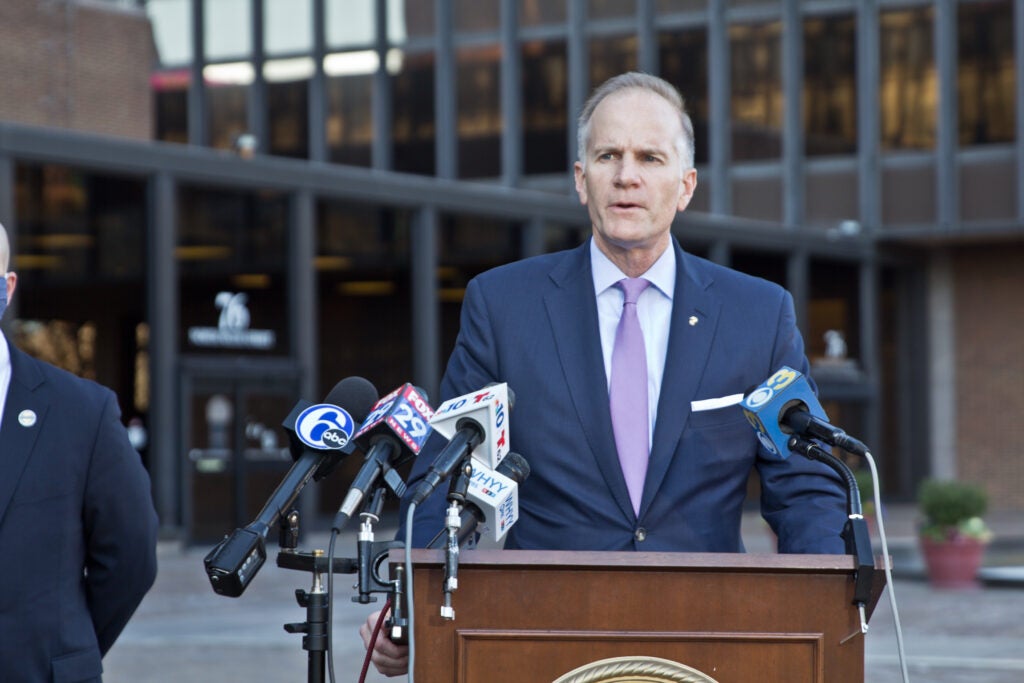
Current occupation: Private practice attorney
Political history: U.S. Attorney for the Eastern District of Pennsylvania
Hometown: West Chester
McSwain, the recently-departed U.S. Attorney for Pennsylvania’s eastern district, is running on a tough-on-crime platform and raising some of the most heavily-discussed issues in conservative circles aligned with Trump, including: pandemic-related mandates, teaching about systemic racism in schools, and election security.
His tenure as U.S. attorney was marked by vocal opposition to self-identified “sanctuary cities,” like Philadelphia. He clashed repeatedly with Philly Mayor Jim Kenney and District Attorney Larry Krasner, opposing a city plan for a supervised opioid injection site and blaming their policies for rising homicide and gun crime rates.
McSwain stepped down as U.S. Attorney soon after Trump left the White House, and has since stressed the fact that he was appointed by the former president.
He has also attempted to curry the president’s favor when it comes to baseless election fraud claims — while carefully avoiding saying he thinks any actual fraud took place. Before the 2020 election, McSwain issued a pointed statement saying he intended to watch carefully for potential election issues — though he ultimately didn’t file any fraud cases. Ahead of his formal campaign announcement, McSwain sent a widely-discussed letter to Trump — which Trump promptly publicized — asking for his support and claiming that former Trump Attorney General Bill Barr had prevented him from publicizing his concerns about election “irregularities.” Barr strongly disputed McSwain’s re-telling, calling his letter “deceptive” and saying McSwain was simply trying to keep Trump from publicly insulting him.
That entire episode likely backfired in April, however, when Trump issued his first public statement on the Pa. gubernatorial race: he told Pennsylvanians McSwain was a “coward” and they shouldn’t vote for him, because, Trump said, McSwain did not do enough to stop “massive” fraud in the 2020 election.
McSwain, who lives in West Chester, is a Harvard Law graduate and former Marine infantry officer. Before his appointment as U.S. attorney, he worked as a federal prosecutor and was a partner in the Philadelphia law firm Drinker, Biddle & Reath, mainly focusing on white-collar criminal defense. After his departure from the U.S. attorney’s office, he started with the Philadelphia law firm Duane Morris LLP.
Doug Mastriano, 57

Current occupation: State Senator
Political history: 2018 congressional candidate (PA-13)
Hometown: Fayetteville
Mastriano, a state senator from Franklin County, has become a darling of the Trump-aligned wing of the Republican Party over the last several years, even as he has alienated himself from powerful GOP colleagues in the senate. He said in December that he had reached his self-imposed fundraising goals, and would be officially launching his campaign in early 2022.
Mastriano spent thousands of dollars from his campaign account to rent buses to transport people to the Jan. 6 rallies in Washington D.C. that turned into an insurrection. He attended too, and later appeared to downplay how close he was to the violence.
Since Trump’s departure from office, Mastriano has been one of the loudest voices in Pennsylvania politics calling the 2020 presidential election into question. While it has become relatively mainstream among Pennsylvania Republicans to question the administration of the election and call for an “audit” on those grounds, Mastriano is part of a smaller, more extreme contingent that has insisted, falsely, that the 2020 election was rife with fraud.
Until recently, he led a Senate GOP initiative to conduct some form of election review. Senate President Pro Tempore Jake Corman (R-Centre) stripped him of that duty, and of his Harrisburg staff and committee chairmanship, after Mastriano unilaterally sent letters to three counties threatening subpoenas if they didn’t hand over election materials. Corman also accused Mastriano of being “interested in politics and showmanship and not actually getting things done.”
Mastriano is a retired U.S. Army colonel who served 30 years of active duty. He was elected to the Senate in 2019. During his time in elected office, he has also been a vocal opponent of abortion, mask mandates, and COVID-19 lockdowns.
He formally announced his long-expected campaign in early January, and has since enjoyed strong polling — though analysts have theorized that his far-right base might be too small to actually pull off a primary win.
Charlie Gerow, 66

Current occupation: GOP strategy and communications; CPAC vice-chair
Political history: Worked on Ronald Reagan’s presidential campaign, repeat RNC delegate, congressional candidate in 1998 and 2000, longtime political analyst
Hometown: Harrisburg
Gerow, a central Pennsylvania-based Republican strategist, and frequent conservative commentator has so far run a campaign that stresses his establishment conservative bona fides, while also echoing popular rhetoric from the Trumpist wing of the party.
In the video announcing his campaign, he accused established politicians and “the liberal media” of trying “to cancel” people who critique them, and said he wanted to fight against “liberals, socialists or anarchists out to destroy what our founding fathers sacrificed for, and our soldiers bled for.”
Gerow has pledged to support the natural gas industry and oppose pandemic mask mandates. He told the Pennsylvania Capital-Star that he thinks the commonwealth should be more cautious about using no-excuse absentee ballots, but also told the Philadelphia Inquirer that he acknowledged Joe Biden as the legitimate winner of the 2020 election.
He noted in his introductory campaign video that he started his career as a staffer for Ronald Reagan’s first presidential campaign. He has since been a fixture in Harrisburg, founding the public affairs company Quantum Communications in 2001 after unsuccessful bids for state senate and congress in the ‘80s and ‘90s.
Dave White, 60
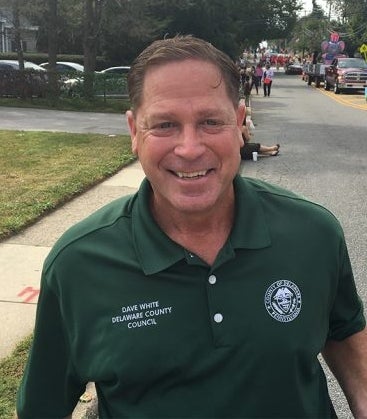
Current occupation: Owner of a large plumbing and HVAC company
Political history: Delaware County Council member, lost reelection in 2017
Hometown: Morton
White has been prominent in Delaware County politics for years. He’s a vocally proud member of Steamfitters Local 420 — from a long line of the trade — and has been a key player in GOP efforts to win over the traditionally Democratic-voting building trades.
The election that saw White lose his Delco Council seat was also a landmark moment for suburban Philly politics at large. The region had been moving steadily left for about a decade, and with that election, Delaware County became controlled by Democrats for the first time in a hundred years. White’s approach to politics has been informed by that purplish political atmosphere. In that race, he stressed his blue-collar roots and commitment to reasonable taxes and good fiscal management.
He has built a formidable campaign war chest, putting about $4 million of his own dollars into the campaign, and getting support from a big PAC run by longtime GOP powerbroker and candymaker Bob Asher. He has also enjoyed financial support from the building trades — a fact his primary opponents have tried to use to paint him as a liberal.
Joe Gale, 31
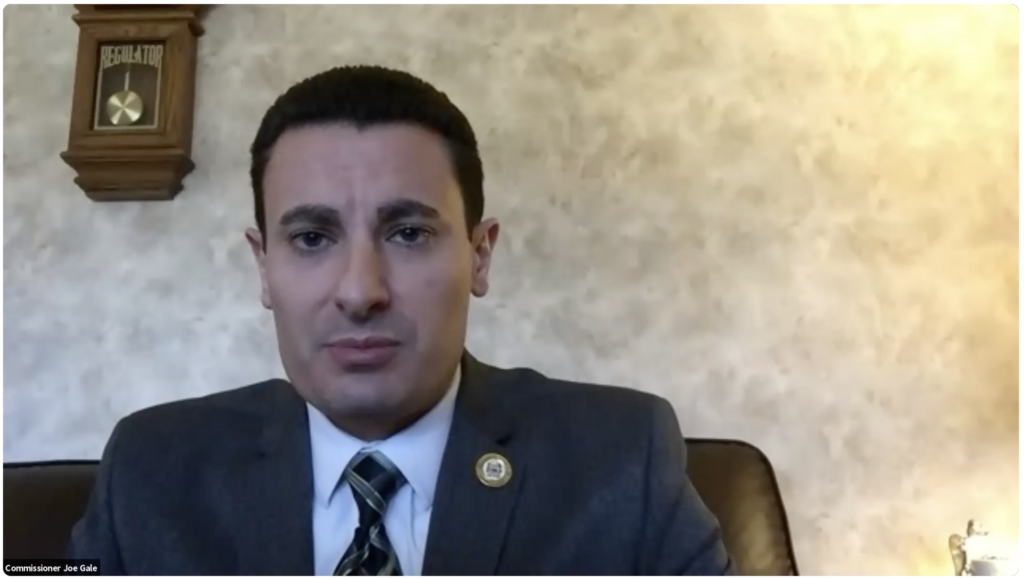
Current occupation: Montgomery County Commissioner
Political history: Worked as a clerk in the county Recorder of Deeds department
Hometown: Plymouth Township
Gale, a Montgomery County commissioner since 2015, has sought to brand himself as the most Trump-aligned candidate in the field.
On his campaign website, Gale calls himself “pro-life, pro-2nd Amendment, pro-small business, pro-shale, pro-pipeline, pro-Trump and, most importantly, not controlled, influenced or endorsed by Republican Party bosses.” He also claims Trump’s presidency was “sabotaged” and told WHYY that virtually no Republican currently in elected office in Pennsylvania is conservative enough.
Gale was elected to his commissionership at 26 and has since tangled repeatedly with both his Democratic fellow commissioners, as well as his county’s Republican party.
The other commissioners called for his resignation after he said Black Lives Matter protesters were “hate groups” committing “urban domestic terror” during 2020’s widespread protests. After the Jan. 6 insurrection, he claimed there was a double standard for violent acts committed by the left and right wings. Commission Chair Valerie Arkoosh has publicly called him a “racist.”
Melissa Hart, 60
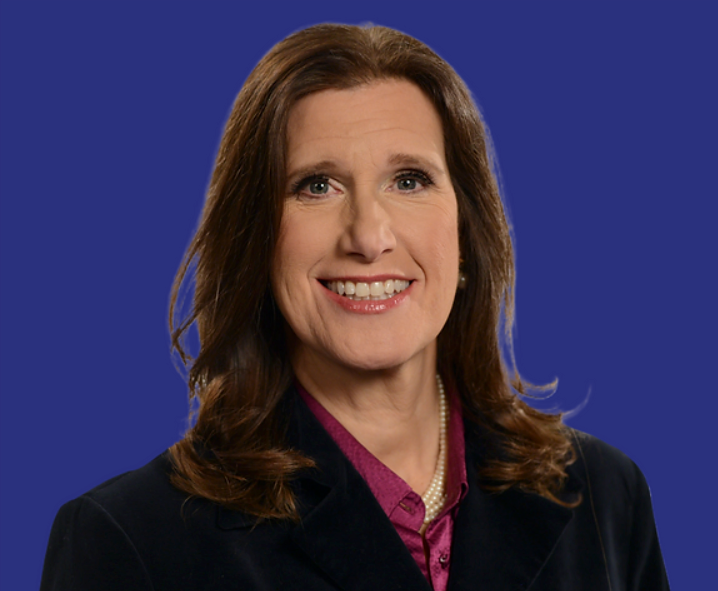
Current occupation: Private legal practice, political consultant
Political history: Former state Senator and congressional member
Hometown: Pittsburgh suburbs
After being elected to the Pennsylvania Senate in 1991, when she was 28, Hart became the first woman the commonwealth had ever elected to federal office, flipping a previously Democratic-held congressional seat in 2000.
After being broadly viewed as a rising star of the party, Hart lost her congressional seat to a Democrat in a 2006 upset — part of a pattern of GOP losses that year.
She has since been out of politics, but says she wanted to run for governor this cycle because she “cannot sit on the sidelines any longer as politician after politician fails to deliver for the people of Pennsylvania.”

Get more Pennsylvania stories that matter
WHYY is your source for fact-based, in-depth journalism and information. As a nonprofit organization, we rely on financial support from readers like you. Please give today.




